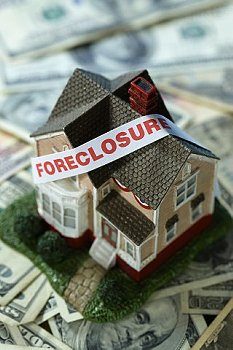Like my blog? Sign-Up for a FREE newsletter! OR Give a ‘Like’ to my FaceBook Page
 If you are facing foreclosure, you are probably dealing with a fair amount of stress and overwhelming emotions. The truth is foreclosures are pretty common nowadays and there are certain things that can be done to prevent them from taking place. The following tips can help if you happen to be dealing with a possible foreclosure.
If you are facing foreclosure, you are probably dealing with a fair amount of stress and overwhelming emotions. The truth is foreclosures are pretty common nowadays and there are certain things that can be done to prevent them from taking place. The following tips can help if you happen to be dealing with a possible foreclosure.
Analyze Your Situation
The first thing to do when you are facing foreclosure is take some time to calmly sit down and analyze your situation. If you are married, it is a good idea to do this with your spouse so you can discuss things completely and analyze the situation together. Take a good look at your finances, including your income, monthly bills, and other expenses. Talk about what you can afford and what you cannot. By taking a good look at your situation, you will be able to give your lender or counselor accurate information when you contact them. The more information you disclose, the easier it is for them to assist you with an alternative to foreclosure. It is also good to remember that the foreclosure process takes time. You likely have adequate time to sit down and discuss what your plan of action is going to be.
Communicate With Your Lender After you take some time to analyze your complete situation, you should gather all of your financial documents and information and make a call to your lender. If you have been avoiding the constant bills and endless phone calls, make sure you stop ignoring them and speak with someone as soon as possible. Ask for a person who is trained in dealing with foreclosures and mortgage loan mitigation. With the high number of foreclosures these days, there should be someone available to speak with regarding your type of situation. Explain everything and let them know you want to do everything you can to stay in your home. Tell them how you got into your situation so they can better understand where you are coming from. Also let them know what you can and cannot afford. You certainly do not want to agree to something that will end up doing you more harm than good.
Contact a Counselor
Once you speak with your lender regarding your situation, you may also wish to contact a foreclosure avoidance counselor. The U.S. Department of Housing and Urban Development (HUD) provides access to these free counselors. A counselor can offer great assistance to you during this rough time. They can make the foreclosure process easier to understand by explaining your state’s foreclosure laws. A counselor will also discuss foreclosure alternatives with you and assist you in choosing the best alternative for your needs. In some cases, your counselor may also help you negotiate with your lender. After you take the time to contact a counselor, make sure you let your lender know you did so. By taking the initiative to work with a counselor, it shows your lender that you are committed to saving your home and working out a resolution. When you are working with both your lender and a foreclosure avoidance counselor, you should hopefully be able to come up with a feasible alternative to foreclosure. You may be very surprised to know how much help lenders and counselors will offer if you simply just ask.
Guest post from Harper Ryan. Harper writes for HomeLoans.org.
